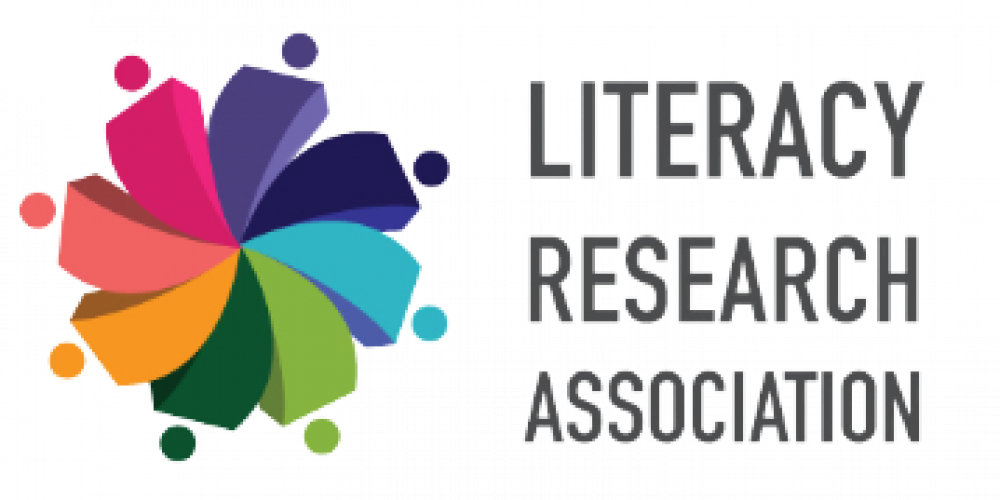President’s Message Greetings LRA Family and Friends, I hope this summer has provided some respite from various cares and renewed your spirit! Thanks to LRA’s 72nd Conference Chair and President-Elect, Doris Walker-Dalhouse, and her planning team for their work in organizing a much-anticipated meeting in Phoenix, Arizona at the Arizona Grand Resort and Spa from November 29 – December 3, 2022. For Conference 2022, LRA welcomes plenary speakers Brian Brayboy from Arizona State University, Angela Valenzuela of the University of Texas at Austin, and Guadalupe Valdés, Stanford University and the 2022 recipient of the Distinguished Scholar Lifetime Achievement Award. All of these scholars are National Academy of Education members whose research and writing have been foundational in establishing much of the current thinking regarding approaches to social justice, racial equity and the deep benefits of multilingualism and diversity in today’s schools and society. I want to follow up a bit more on the decision to have only an in-person conference this year, rather than a hybrid one. It is important to know that the choice of venue for the annual meeting involves a blend of intellectual, ethical and business dimensions. First, the business aspect. Choosing a conference location is a long, intensive process (sites are normally chosen 3-years in advance), involving multiple LRA and management company personnel in the decision. The process involves the initial preparation of an RFP that is then sent to dozens of hotel venues, outlining LRA’s goals and logistical needs for the annual meeting, after which begins the careful vetting of numerous hotel and vendor proposals. After a short list of possible sites is identified, each one is visited by a core group of LRA officers and ASG staff to get a clear visual picture of the venue itself and the surrounding area. All along the way, the team is negotiating affordable pricing for accommodations, adequate meeting space, technical support, reasonable catering costs, internet services, and assessing the transportation networks adjacent to hotel properties, just to name a few of areas of decision-making. None of these costs, with the exception of the room rates, are fixed necessarily, so there is an ongoing and lively exchange of information and negotiation between LRA and venue officials nearly up to the dates of the conference itself. As your President, I have come to greatly appreciate the careful planning, judgment, and negotiating skill that is evident on LRA’s behalf in this sophisticated process. Second, on the ethical side, LRA has, indeed, in the past made decisions not to go to states where there have been restrictions, for example, on affirmative action or gender-neutral bathrooms. However, during the last 3 years, in particular, if the advent and ongoing impact of the pandemic weren’t enough disruption, now numerous states are aggressively suppressing voting rights, criminalizing discussions of CRT in classrooms, and imposing narrow approaches to literacy instruction on teacher education programs across the country. Further, with the overturning of Roe vs. Wade and real threats emerging to women’s and families’ health in this post-Roe environment as well as an anti-LGBTQIA2S+ sentiment, the business of choosing a conference site has become dramatically more complicated as most of the states in the South and Southwest where LRA has typically held conferences now have state policies with which LRA does not fundamentally agree. Thus, the current venue selection process involves many more issues to juggle than in the past. Finally, drilling down into the costs and provision of various types of conference hybridity to include the range and type of presentations which is typical of LRA has proven to be a thorny problem. While we are all used to robust internet services at our universities to meet with and collaborate with our colleagues worldwide, to conduct professional development and other business, I was not aware of the costs of providing this service until I asked our chief information officer. At the University of Arizona, the base cost to maintain such services for faculty, staff and students is between one-half and three-quarters of a million dollars. And this cost is actually discounted for research and industry institutions as they use Internet 2, a specialized system of digital resources and networks designed exclusively for supporting the work of research. However, when LRA meets at a hotel venue, the internet providers are commercial, with commercial rates, considerably higher than the Internet 2 cost. Our planning team has compared the costs for various hybrid formats against what other organizations have paid which range easily from $40,000 to well over $100,000 depending upon the type of virtual service provided; and this cost is above and beyond what is paid for digital and technical support of the in-person conference which effectively doubles the cost of conducting the annual meeting. Another factor in this equation is LRA’s relatively small size, fluctuating between 1,200-1,500 members over the past few years. To put it simply, organizations with a membership of 25,000 like AERA and NCTE, and ILA with its 300,000 members worldwide in 128 countries, have more budget to consider a broader scope of digital offerings to their members. In order to get a clearer picture of the changing political and financial landscapes which LRA’s annual meetings are confronting, I appointed a special Conference Venue Committee this year, chaired by former LRA President, Janice Almasi, to do a deep dive into ways that the annual conference can be more affordable, accessible, and aligned with LRA’s values and mission. This committee will present their final report in December at the 2022 Annual Meeting. I would like to mention one more thing, that is, the importance of supporting the e-editors in their efforts to increase the communication capabilities of the new, custom-built website. While the old listserv is no longer available, there are ample ways that communication among LRA members can take place. For example, on the BLOG tab, the e-editors have created a form https://literacyresearchassociation.org/news/submit-content/ where LRA members, Standing and Award Committees, our journal editorial teams, and ICGs can share information related to news, committee updates, and pertinent publication information. LRA is fortunate to have such dedicated members as those of the e-editor team, members of the Technology and Digital Communications Committee, and Headquarters staff who have arduously worked to ameliorate various glitches, create new functionalities, and provide affordances to LRA members to communicate with colleagues and share information relevant to the larger membership. Please take the initiative to share information through the link above or contact the e-editors directly at write@literacyresearchassociation.org. In closing, these past three years have had dramatic, and sometimes tragic consequences for both our personal and professional lives. Nonetheless, LRA’s leadership and its members are continually striving to create an intellectual and professional environment where literacy scholars from all reaches of the planet feel “at home,” as it were, in that their personal and professional interests, values and research are appreciated and valued. The more we communicate with one another, the better we prosper and grow. With great respect and appreciation, David David Yaden LRA President 2021-2022 Message from the Conference Chair and LRA President Elect Dear LRA Family, We are enthusiastically awaiting the opportunity to gather again in-person for the 72nd Annual Conference in Phoenix from November 29th-Decemember 3rd, 2022. The past leaders of LRA always envisioned the annual meeting as opportunities for face-to-face networking and reconnecting with old friends in an atmosphere that challenges our thinking and creates opportunities for addressing significant issues impacting literacy research theory, practices, and policies. As members, we value the feeling of being more connected and engaged as presenters, discussants, session chairs, and attendees and the time spent socializing with colleagues in a casual and relaxing environment. Read more. REGISTER TODAY 72nd Annual Conference Update Throughout the summer, the 2022 LRA Conference Planning Committee has remained steadfast in its commitment to provide you with an intellectually stimulating, professional engaging, and personally satisfying conference experience. Guided by the theme, “Crossing boundaries and borders: In pursuit of equity, solidarity, and social justice”, we have invited three renowned scholars: Drs. Bryan Brayboy, Angela Valenzuela, and Guadalupe Valdes to share their scholarship, research, and insights with us as plenary speakers in addressing the conference theme. Further information about Drs. Brayboy and Valenzuela can be found on the LRA website. Dr. Guadalupe Valdés, the 2022 Distinguished Lifetime Scholar Award recipient is an expert on Spanish-English bilingualism in the United States. Additional information about this distinguished scholar will soon be shared on the website. Our lineup of speakers is not complete as we will soon be highlighting additional key presenters. Stay tuned! To reach a wide audience of attendees to hear our outstanding plenary speakers and presenters, the Conference Planning Committee has expanded its outreach efforts by inviting state, regional, and local organizations to attend the conference. If you have any recommendations for organizations or individuals that should be invited to attend, then we encourage you to share them with VJ Mayor, LRA Executive Director, at vjmayor@asginfo.net. We want those policy makers, school personnel, community leaders, and fellow researchers to be part of this important conversation and professional development experience sponsored by the primer research organization in literacy. As we continue to plan for our in-person conference, we are mindful that COVID-19 variants and considerations for the health of attendees must also be a priority. The conference Committee has decided not to require proof of vaccination for attendance this year. However, we encourage conference attendees to wear masks that cover their nose and mouth in meeting rooms. In accordance with CDC recommendations, we also encourage attendees to get vaccinated and boosted if eligible and able to do so. Please consult this link for further information. If community levels of COVID-19 are high as we get closer to the conference date, we will revisit the voluntary mask recommendation and communicate the change from voluntary to required making via the website and in e-blasts to the membership. Once you are onsite at the Arizona Grand Resort and Spa, we will be using the same system used last year to communicate preferences for social distancing while interacting with others. Green, yellow, and red stickers will be provided at registration for attendees to put on their badge to indicate their social comfort level. Green stickers will mean that the attendee is most comfortable with handshakes and hugs, yellow stickers will mean fist bumps and elbow taps, while red stickers will mean waves and air high fives. Doris Walker-Dalhouse LRA Conference Chair 2021-2022 President Elect doris.walker-dalhouse@marquette.edu Alfred W. Tatum LRA Associate Conference Chair 2021-2022 atatum1@msudenver.edu Acclaimed Professor to Speak at 2022 Conference Dr. Bryan Brayboy, President’s Professor in the School of Social Transformation at Arizona State University, is scheduled to present a plenary address at the Literacy Research Association’s 2022 Annual Meeting in Phoenix, AZ. Dr. Bryan Brayboy, President’s Professor in the School of Social Transformation at Arizona State University, is scheduled to present a plenary address at the Literacy Research Association’s 2022 Annual Meeting in Phoenix, AZ. Read more. 2022-2024 STAR Cohort Announced! The STAR program is a two-year cohort model for eight scholars of color in the first two years of a tenure-track literacy appointment. Fellows are then matched with senior scholars of color in our field and organization. As part of the STAR program, fellows and mentors participate in a series of mentoring and research sessions at two annual conferences and in a spring writing retreat. Read about the 2022-2024 STAR Cohort. LRA’s New Job Board is Now Live! Whether you are looking for a new position or a new hire, LRA’s job board is the place! Association members from across the world can now view open positions while organizations can post theirs. Learn More 2022 LRA Silent Book Auction We will be reaching out to publishers in the coming weeks seeking donations for the 72nd Annual Conference, regarding the Silent Book Auction being held at the Arizona Grand Resort & Spa, Phoenix, AZ. If you would like to see your work on display and also be part of the auction, please fill out our Silent Auction Questionnaire below. Please complete the form by no later than October 7, 2022. If you have any questions or concerns, please feel free to reach out to LRAHQ. We are here to help! Silent Auction Questionnaire 2022 LRA In Memoriam Information Request Despite the difficulties and uncertainties in the past year, we have much for which to be grateful, such as family, friends, and LRA colleagues whom we look forward to seeing every year. Unfortunately, several colleagues have passed away this year, and we want to honor them during the 2022 conference. At this time, we ask that you complete the form below, by submitting their names, a photo, and a brief blurb about their life and involvement in LRA. If you have more than one individual that you would like to have memorialized, please fill out the survey for each individual. All submissions must be received by Friday, October 14, 2022. If you have questions or concerns, please reach out to LRAHQ for assistance. Click here to begin Now Accepting Award Nominations for… 2022 P. David Pearson Scholarly Influence Award Deadline September 5, 2022 The purpose of this annual award is to honor, in P. David Pearson’s name, the author(s) of an article, chapter, or book written at least 5 years prior to the nomination, which has positively and demonstrably influenced literacy practices and/or policies within district, school and/or classroom contexts. Read more. 2022 Arthur Applebee Award Deadline September 6, 2022 Please take a moment to submit a nomination for an article for the Arthur Applebee Award for Excellence in Research on Literacy. The deadline is Tuesday, September 6, 2022. The Arthur Applebee Award for Excellence in Research on Literacy is presented annually to honor an outstanding article in literacy research published in a refereed journal in the previous calendar year. Read more. The Teacher Educators’ Journal (TTEJ) – Call for Manuscripts The Teacher Educators’ Journal (TTEJ) is published by the Virginia Association of Colleges and Teacher Educators (VACTE), a state unit of the Association of Teacher Educators (ATE) and the American Association of Colleges for Teacher Education (AACTE). The journal aims to stimulate discussion and reflection about issues related to teacher education; authors need not be based, and research need not be conducted, in Virginia for manuscripts to be considered for publication. Manuscripts submitted for consideration may be research/empirical reports and analyses, position papers, book reviews, or conceptual essays. To facilitate collaboration amongst teacher education scholars and practitioners and improve teaching, research, and student learning, the theme for the Spring 2023 journal is “Equity Issues in Teacher Education Research and Practice.” Learn more about submission guidelines. Authors should submit an electronic version of their manuscript using the Manuscript Submission Form. All manuscripts must be received by November 1, 2022 for consideration for the Spring 2023 issue. Please direct all questions about the journal to askTTEJ@gmail.com. LRA Members Publish “Flying Kites: Narratives of Prison Literacies in Essays and Art” We are excited to announce that our book “Flying Kites: Narratives of Prison Literacies in Essays and Art” has been published and is now available to order. It is a JOY to see this book manifest in the world!!! We want to make a special shout-out to our Series Editor, Judith Dunkerly! We felt the best way to learn more about prison literacy was to privilege the voices of incarcerated and formerly incarcerated writers, and in the beginning of 2020, we began the daunting task of soliciting submissions directly from prisons across the United States. In American jails and prisons, notes and letters are commonly referred to as “kites,” and we crossed our fingers as we let the wind carry our invitation away from us. We hope you will buy a copy for your personal library, and suggest that your local public or university library order a copy. 100% of book royalties will go toward El Refugio, an advocacy organization for detained immigrants. We will also be raising money to ensure that all contributing authors receive a physical copy of the book, so please consider donating to the cause (link in comments). We titled the book “Flying Kites” because we want to send a message that literacy learning is vital in all spaces. This book covers the struggles and successes of reading and writing in prisons and detention facilities. We hope you’ll lend an ear to the authors of our book. They have some remarkable stories to tell about reading and writing in American prisons. Order the book today at: https://www.diopress.com/flying-kites Best, Mikel W. Cole, Ph.D. Associate Professor of Bilingual and ESL Education University of Houston LRA Wants to Share Your News! Want to share news with the LRA Community or contribute to Critical Conversations? Follow the link in the button below or reach out to our e-editors directly at write@literacyresearchassociation.org to submit content. Submit Content





